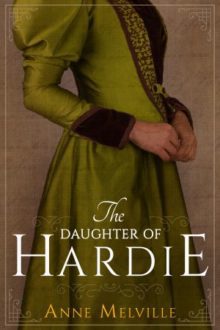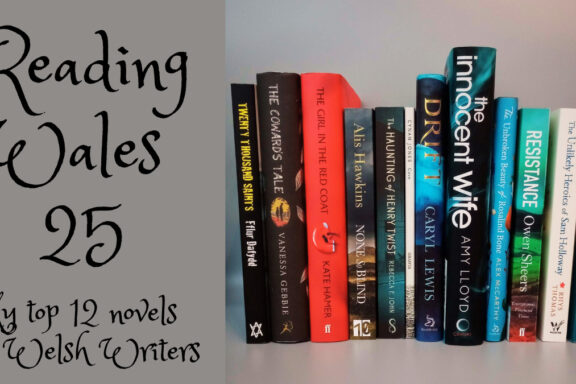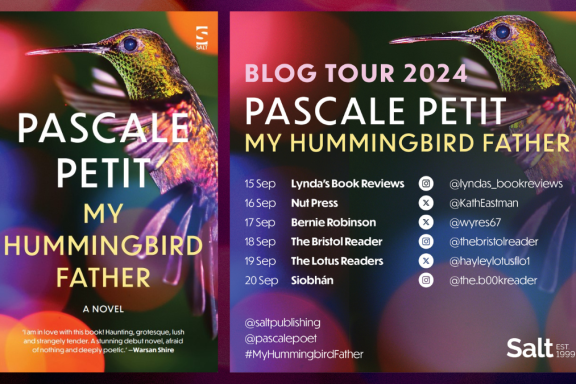
Anne Melville’s The Daughter of Hardie is the second book in The Hardie Family series and follows on from The House of Hardie which I reviewed on the blog last month. It focuses on Gordon and Lucy’s children and, as the title suggests, their daughter, Grace.
Grace Hardie has grown up in a sweeping estate on the outskirts of Oxford. But her life has been a far cry from a fairytale. Ailing and asthmatic as a child, she never really found her place – not with her brothers, not with any friends – always on the outside.
And when tragedy strikes twice in the same day, Grace’s world, and her place in it, is turned upside down. Ungainly and lonely at sixteen, could the bloom of first love be the guiding light she needs? Or is the history of The House of Hardie bound to repeat itself?
As class once again threatens to tear the family apart, so too does the Great War: sweeping away this budding romance before it’s had a chance to begin. Through heartbreak and betrayal, longing and loss, Grace Hardie must adapt to this changing world and struggle to find her own way.
First up, I feel the need to say something about the cover. I know this is a reissue of a previously published series but I don’t think the covers do it justice; while they indicate that the books are historical fiction, they don’t give any sense of the dynamic characters and places within. (I would have liked to have seen the family home, complete with the tower Grace loves so much and possibly even some family members, feature on this one, and the family wine merchants, with either a running shop boy or someone loading wine crates, on the first one.) Now, back to the book.
The Daughter of Hardie provoked a surprising range of emotions in me: I railed at Gordon and felt for Lucy, his children and the employee he placed so much reliance on to manage the family wine business; I reflected upon how the Hardie children were shaped by the differing expectations put on them due to their sex (and class), two particular events in childhood that resonated (with some more than others) well into their adult lives, and later again as the war changed the demands upon and the direction of those lives.
I was happy to see Midge feature, and couldn’t help but feel that Grace is a little harsh in her judgement of her towards the end of the book. She’s a character who I admired as much as Grace did, and I thought she deserved to celebrate her long-overdue day of recognition and have a little more understanding of her (later) life choices after long years of frustration, loss and sacrifice. I didn’t see it as the betrayal that Grace did, which I put down to her youth and limited experiences.
That small blip aside, I found The Daughter of Hardie to be as engaging as its title bearer, Grace. I was, in turn, hopeful, upset, frustrated, anxious and ultimately relieved as Grace takes her time and makes her own meandering way around her Oxfordshire hillside, growing up among the many Hardie brothers, experiencing her first loves, becoming an adult and feeling even more the pull between duty and love, expectation and fulfilment, while trying to find her purpose in the post-First World War world.
Grace’s story is hopefully far from over but she’s found what works for her by the end of the book and her path there is an exciting one for someone who doesn’t want to venture far from home. I enjoyed seeing how she comes to determine what it is she both wants and, more importantly, doesn’t want out of life, while discovering that the best life advice and inspiration often come from the most unlikely of sources.
The Daughter of Hardie by Anne Melville was first published as Grace Hardie in 1988 and is the second in The Hardie Family series. It’s now been published by Agora Books, part of Peters, Fraser + Dunlop, one of the longest established literary and talent agencies in London, and is available as an ebook and in paperback. You can buy it from Amazon UK.
Anne Melville was the pseudonym of Margaret Edith Newman, 1926 – 1998. Over the course of her career she published fifty-five novels in romance, mystery, historical fiction and children’s.
My thanks to the publisher for making a review copy available via NetGalley.



Agree with you about that cover. It tells me absolutely nothing about the book and is rather dull
Yes, it’s such a shame, too, because I enjoyed this one even more than the first book in the series.